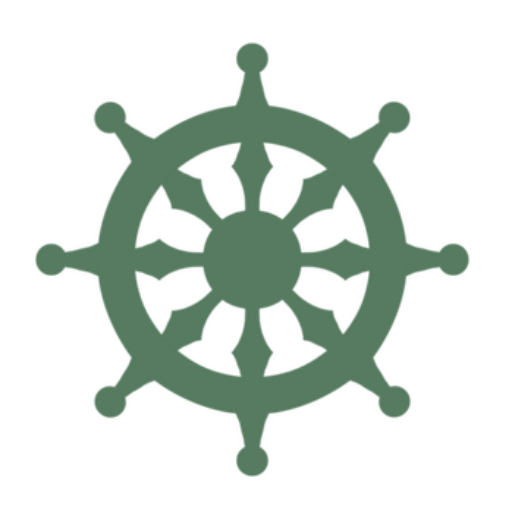
What is Holistic Recovery?
Twelve Mile Recovery, located in the serene surroundings of Niagara, Ontario, offers a unique approach in the realm of drug rehabilitation ontario. With a dedicated team of individuals who have personal experience with addiction recovery, the treatment center adopts a holistic perspective, addressing addiction on multiple levels–physical, mental, emotional, and spiritual.
This multifaceted approach aims to heal not only the symptoms but also the root causes of addiction. By integrating various therapeutic practices, Twelve Mile Recovery provides a comprehensive framework for sustainable recovery. This blend of therapies allows clients to regain control and rediscover their innate strengths in an environment that values compassion and empathy.
Harnessing Personal Experiences in Treatment
The foundation of Twelve Mile Recovery’s success lies in the personal experiences of its team members. Their firsthand knowledge of the challenges and triumphs associated with addiction brings an invaluable dimension to their treatment programs. This lived experience fosters a genuine connection with clients, creating a trusting and supportive atmosphere essential for meaningful recovery.
By sharing their stories, the team members serve as beacons of hope, demonstrating that a fulfilling life beyond addiction is entirely attainable. This peer-supported environment encourages clients to embrace their own journeys with courage and determination, leading to profound transformations in mind and spirit.
Integrating Evidence-Based Therapies
Twelve Mile Recovery employs a range of evidence-based therapies to ensure a well-rounded treatment plan. These therapies include cognitive-behavioral therapy (CBT), which aids clients in identifying and changing negative thought patterns, and mindfulness practices that promote present-moment awareness and emotional regulation.
Martial arts is another innovative therapeutic tool used at the center, fostering discipline and resilience through physical activity. These diverse therapeutic options empower individuals to cultivate new coping strategies, enhancing their capacity to manage stress and triggers in the long run.
Yoga and trauma-informed psychology are also integral components, offering clients additional avenues to process past experiences and build emotional fortitude. These therapies work synergistically, providing a broad spectrum of support that caters to diverse needs and preferences.
The Importance of Inpatient Care
In the landscape of drug rehabilitation ontario, inpatient care plays a crucial role in facilitating recovery. At Twelve Mile Recovery, the inpatient program offers clients a structured environment where they can receive comprehensive support around the clock. This setting is particularly effective for those requiring a safe space away from external distractions and influences.
Clients benefit from daily routines that include therapeutic sessions, wellness activities, and community interactions. This consistent structure not only aids in establishing healthy habits but also provides a solid foundation for reintegration into everyday life after treatment. The residential setup offers an immersive experience that is vital for those in the early stages of recovery.
Trauma-Informed Care
Understanding the interplay between trauma and addiction is essential for effective treatment. Twelve Mile Recovery integrates trauma-informed care into its programs, recognizing that unresolved trauma often underlies substance use disorders. By acknowledging past experiences and providing a safe environment to explore them, clients are empowered to confront and heal from these past wounds.
This approach ensures that treatment is empathetic and sensitive to individual backgrounds, minimizing the risk of re-traumatization. Clients receive support in developing resilience and self-awareness, which are crucial for maintaining long-term sobriety and personal growth.
Trauma-informed care also emphasizes collaboration and empowerment, enabling clients to take an active role in their recovery process. This client-centered approach fosters a sense of ownership and commitment to achieving meaningful change.
Building a Supportive Community
The role of community in the recovery process cannot be overstated. Twelve Mile Recovery prioritizes the cultivation of a supportive community where clients can connect and share their experiences. This peer interaction provides motivation and accountability, helping individuals stay committed to their recovery goals.
Group therapy sessions and community activities encourage open dialogue and mutual support, allowing clients to build connections that extend beyond their stay at the center. These lasting relationships become a vital resource for continued support and encouragement, both during and after treatment.
Creating Individualized Treatment Plans
Recognizing that addiction affects each person uniquely, Twelve Mile Recovery customizes treatment plans to address individual needs and circumstances. This personalized approach ensures that clients receive the specific support necessary for their unique recovery journey.
Treatment plans are developed collaboratively, involving clients in the decision-making process to tailor interventions that align with their personal goals and aspirations. By adapting therapies to reflect each client’s unique strengths and challenges, the center maximizes the effectiveness of its programs and facilitates more successful outcomes.
Regular assessments and feedback loops allow for the continuous refinement of treatment plans, ensuring they remain responsive to clients’ evolving needs.
Testimonials and Client Stories
The transformative power of Twelve Mile Recovery’s programs is echoed in the heartfelt testimonials from former clients. Leah Marie Radoman’s praise for Jo and Chris highlights their unwavering dedication to creating a nurturing, judgment-free space where healing can occur. This personal touch is a hallmark of the center’s approach, instilling hope and confidence in those embarking on their recovery journey.
Michael Laughlin and Robyn O’Hara commend the team’s empathy and resilience, attributing their newfound strength and sobriety to the center’s comprehensive care. These stories serve as powerful reminders of the potential for recovery when individuals are supported by a compassionate and skilled team.
Exploring Virtual Treatment Options
In today’s digital age, Twelve Mile Recovery offers virtual treatment programs to expand access to support for those unable to attend in person. These online options cater to various needs, providing flexibility and convenience for clients facing geographic or personal limitations.
Virtual sessions maintain the same commitment to quality care, incorporating group therapy, individual counseling, and wellness practices into a digital format. This accessibility ensures that even those with demanding schedules or remote locations can benefit from the center’s expertise and support.
Continuing Care and Aftercare Support
Sustaining recovery beyond the initial treatment phase is a key focus at Twelve Mile Recovery. The center provides ongoing aftercare support to help clients transition smoothly back into their daily lives. This continuing care includes regular check-ins, support groups, and access to resources that reinforce recovery principles.
By maintaining a connection with clients post-treatment, Twelve Mile Recovery ensures that they have the necessary tools and support systems to navigate challenges and avoid relapse. This ongoing commitment to client success underscores the center’s dedication to fostering enduring change.
Promoting Martial Arts in Recovery
The use of martial arts as a therapeutic tool sets Twelve Mile Recovery apart within the sphere of drug rehabilitation ontario. This practice not only improves physical fitness but also enhances mental focus, self-discipline, and emotional regulation. Clients learn to channel their energy positively, building inner strength and resilience that contribute to their recovery journey.
The discipline and structure inherent in martial arts training mirror the principles of recovery, providing clients with a constructive outlet to cope with stress and emotional challenges. This unique offering enriches the holistic treatment experience, adding another dimension to the comprehensive care provided at Twelve Mile Recovery.

Is rehab covered by OHIP in Ontario?
Yes, the Ontario Health Insurance Plan (OHIP) does cover certain aspects of drug rehabilitation in the province. Generally, OHIP will cover medically necessary services provided by hospitals, including consultations with professionals such as psychologists and psychiatrists, detoxification services, and some inpatient treatments. However, coverage for private rehab facilities can vary, and it’s important to verify specific services directly with the facility. At Twelve Mile Recovery, we understand navigating coverage can be complex, and we encourage potential clients to reach out to us for detailed information on how OHIP may apply to our services, ensuring a clear path to accessing the care you need.
How much does rehab cost in Ontario?
The cost of rehab in Ontario can vary widely based on factors such as the type of program, length of stay, and whether it’s a private or public facility. Generally, private residential treatment can range from $10,000 to $25,000 or more for a 30-day program. At Twelve Mile Recovery, we strive to provide affordable options by working with clients to explore financial aid and payment plans. Our focus is on delivering high-quality care that doesn’t compromise financial stability, so feel free to contact us for a personalized consultation to discuss your options.
What is the wait time for rehab in Ontario?
Wait times for rehab in Ontario often differ based on the facility and the type of program. Publicly funded programs may have longer wait times due to high demand, sometimes extending several weeks or months. Alternatively, private treatment centers like Twelve Mile Recovery can often accommodate clients more quickly, as our dedicated team members work diligently to provide timely support. If you or a loved one are ready to take the next step, reaching out to us can help expedite the process of securing a spot in our program and beginning the healing journey.
Do you have to pay for drug rehabilitation?
In Ontario, payment requirements for drug rehabilitation can depend on the type of program and facility. Publicly funded programs are typically free of charge or have minimal costs, while private rehab centers generally require payment either through personal funds or insurance. Twelve Mile Recovery is committed to transparency when it comes to costs and offers guidance on exploring various funding options, including insurance coverage and payment plans, to minimize financial barriers to accessing effective treatment. Ensuring affordability is a priority for us, so we encourage potential clients to reach out for assistance in exploring viable options.
What makes Twelve Mile Recovery unique in the field of drug rehabilitation?
Twelve Mile Recovery stands out due to our holistic approach and commitment to integrating personal experiences with evidence-based therapies. Situated in the peaceful setting of Niagara, Ontario, our facility is 100% owned by individuals in long-term recovery, giving us a unique perspective on the challenges of addiction. We emphasize healing the entire person–physically, mentally, emotionally, and spiritually–by combining therapies such as cognitive-behavioral therapy, mindfulness, and even martial arts. Our trauma-informed care model ensures that treatment is both empathetic and effective. We also offer virtual treatment options, making our services accessible to a broader audience. Our community-driven model fosters enduring change, nurturing a supportive environment where clients can thrive. By sharing transformative stories and real experiences, we inspire hope and showcase the possibility of lasting recovery.
Resources
- Substance Abuse and Mental Health Services Administration (SAMHSA) – SAMHSA is a government organization dedicated to reducing the impact of substance abuse and mental illness on America’s communities.
- National Alliance on Mental Illness (NAMI) – NAMI is a nonprofit organization providing education, support, and advocacy for individuals and families affected by mental health conditions.
- National Institute on Drug Abuse (NIDA) – NIDA is a government organization focused on advancing addiction science and providing resources for understanding drug abuse and addiction.
- American Psychiatric Association (APA) – The APA is a professional organization representing psychiatrists in the United States and providing resources on mental health and addiction treatment.
- MentalHealth.gov – MentalHealth.gov is a website managed by the U.S. Department of Health & Human Services, offering information and resources on mental health topics.

